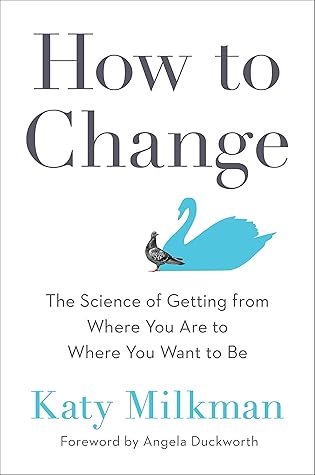More on this book
Community
Kindle Notes & Highlights
by
Katy Milkman
Read between
April 27 - May 15, 2023
Those of us who think we’re born with a fixed capacity for achievement can fall victim to defeatism, putting in little effort to learn from failures and grow. But those of us who view ourselves as works in progress, capable of improvement, exert vastly more effort in the face of setbacks. We seek out challenges, learn from failure, and generally achieve far more as a result.
We all want the person who exudes confidence. While that may not always be the savviest choice (no one wants to end up with an obnoxiously cocky coworker), I suspect we feel comfortable hiring a person who radiates confidence in part because it suggests they’ll keep getting up in the face of failure.
“copy and paste.” She watched peers who had managed to achieve a goal she wanted to achieve and then deliberately imitated their methods.
“false consensus effect.” The paper describes a general tendency humans have to incorrectly assume that other people see and react to the world the same way we do.
describing others’ accomplishments is an effective motivator only when their achievements feel like something we can emulate fairly quickly.
Studies have shown that if a behavior is merely trending upward, rather than widely popular, sharing information about that trend can win people over.
achieving transformative behavior change is more like treating a chronic disease than curing a rash. You can’t just slap a little ointment on it and expect it to clear up forever. The internal obstacles that stand in the way of change, which I’ve described in this book—obstacles such as temptation, forgetfulness, underconfidence, and laziness—are like the symptoms of a chronic disease. They won’t just go away once you’ve started “treating” them. They’re human nature and require constant vigilance.
My book agent, Rafe Sagalyn, served as an exceptional guide on this adventure.
Niki Papadopoulos and the whole team at Portfolio (including Adrian Zackheim, Kimberly Meilun, Regina Andreoni, Amanda Lang, Tara Gilbride, Stefanie Brody, Jarrod Taylor, and Brian Lemus)—I could not have asked for a more extraordinary editor or publishing group.


